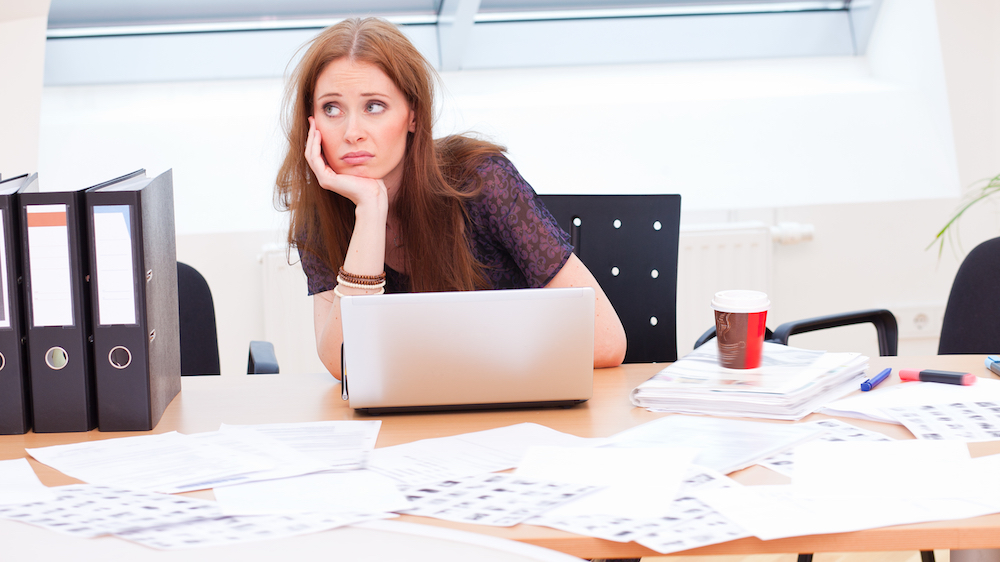A recent survey has found that the afternoon slump hits at exactly 2.22pm for 2000 office workers. That’s the point at which they start to feel tired, distracted and unproductive.
The study, conducted by Get More Vitamin Drinks, also found that the majority of those questioned find themselves hitting this slump up to three days a week. The top reasons quoted by respondents were a warm working environment, not enough sleep the night before, a heavy workload, dehydration and eating too much at lunch.
It seems the afternoon slump may hit more people than those surveyed, as three quarters of respondents said they’ve noticed colleagues crashing at around the same time.
Three in 10 have been caught slacking off on their workload, and a quarter of those have landed themselves in hot water with their boss. Some of the common mistakes tired employees have made include sending an email to the wrong person, making spelling and grammar mistakes in emails and drifting off during a meeting.
Steps respondents commonly take to avoid hitting the afternoon slump include a change in diet (half think they eat worse at work than they do at home), getting fresh air on their lunch break, drinking coffee and taking a full hour at lunch.
Tips for beating the afternoon slump
Francesca Bennet, Health and Wellbeing Programme Manager at AXA PPP Healthcare explains: “If you’re lacking in energy and motivation in the afternoon, don’t worry, you’re not on your own. Sleep is dictated by circadian rhythms also known as ‘The Body Clock’ and sleep homeostasis. Circadian rhythm regulates physiological and behavioural processes including temperature control, hormone production, alertness and sleep. Sleep homeostasis refers to the need for balance; with every waking hour the drive for sleep increases.
“The urge to sleep increases towards 2pm; this is driven by a natural dip in the circadian alerting system and an increase in sleep homeostasis drive. This causes what is known as the ‘afternoon slump’, which occurs approximately 12 hours after we are in our deepest sleep at 2-3am.
“The afternoon slump is a normal feeling and has previously been associated with eating a big meal. This, however, is not the direct cause but may act as a contributing lifestyle factor on the sleep-wake cycle. Poor lifestyle habits and insufficient quality and quantity of sleep can increase the feelings of tiredness and the afternoon slump.”
Some ignore it and power through, some reach for a sugary snack or strong coffee, but however you try to manage this sudden strike of lethargy, it can often feel difficult to shake off.
However, AXA PPP has three simple steps you can employ to help keep afternoon fatigue at bay.
- Eat well
Sugary snacks might provide you with an instant boost, but the effects wear off quickly and can leave you feeling sluggish. Instead, prepare a lunch that provides slow-burning energy to avoid a drop in energy levels later on in the day.
- Watch your posture
We all know that slouching can be bad for our backs, but have you considered that poor posture may also be adding to your feelings of tiredness? It might seem too easy, but making an effort to sit up straight at your desk could be a simple but effective way to improve your concentration in the afternoon.
- Keep things interesting
Not surprisingly, boredom can affect our productivity levels at work, so taking regular breaks, varying your workload and setting new goals could help keep you motivated after lunch.















